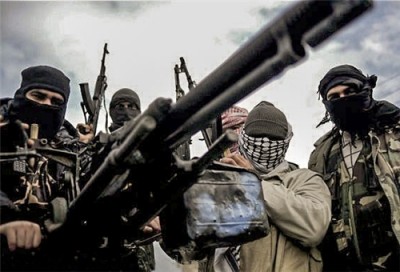America’s War Economy: Senate Defense Bill Halts Guantanamo Closure, Grants Military Aid to Kiev and Syrian Rebels

The $607-billion National Defense Authorization Act (NDAA) passed the Senate with a veto-proof 91-3, with Democratic presidential candidate Sen. Bernie Sanders (I-Vermont) notably casting a “no” vote.
The same defense funding package passed in a similarly overwhelming manner in the House last week, with a vote of 370-58. The legislation will now be sent to President Obama’s desk for signature.
The president had vetoed the original version of the NDAA in October largely due to concerns about an extra $38 billion in war funding.
Congress has also repeatedly thwarted Obama’s effort to fulfill a promise from his first presidential campaign to close the Guantanamo Bay detention center, which is located in US-occupied territory in Cuba.
“Why in the world you would bring these enemy combatants to domestic soil is mind-boggling. This is absolutely nothing short of gambling national security to keep a campaign promise?” Sen. Tim Scott (R-South Carolina) said on Monday.
However, White House officials have hinted that the president may use executive action to close the prison.
“I’m not aware of any ongoing effort to devise a strategy using only the president’s executive authority to accomplish this goal,” White House spokesman Josh Earnest said Monday. “But I certainly wouldn’t, as I mentioned last week, take that option off the table.”
Issues that both parties agreed on include the efficient maintenance and upgrade of the Pentagon’s capabilities in the wake of perceived aggression around the world.
“We must champion the cause of defense reform, rigorously root out pentagon waste, and invest to maintain our military technological advantage, and that is what this bill is about,” Sen. John McCain (R-Arizona) said on Tuesday.
Among other things, the bill authorizes $300 million in lethal military aid to the US-backed government in Ukraine and extends a ban on torture to the CIA. It also grants the president’s request for $715 million to help fight Islamic State (formerly ISIS/ISIL) in Iraq.
The passage of the budget bill will avert a disastrous default by the United States and puts the next round of struggle over spending and debt until after next year’s presidential and congressional elections.

